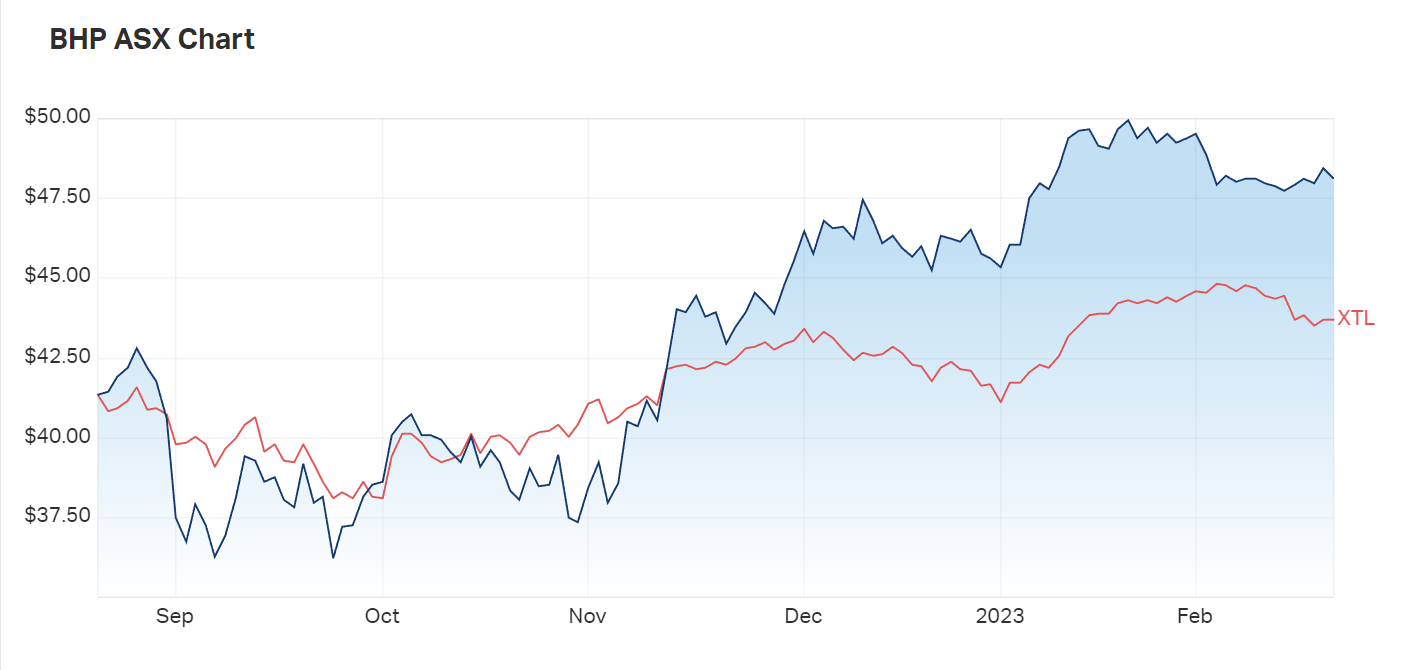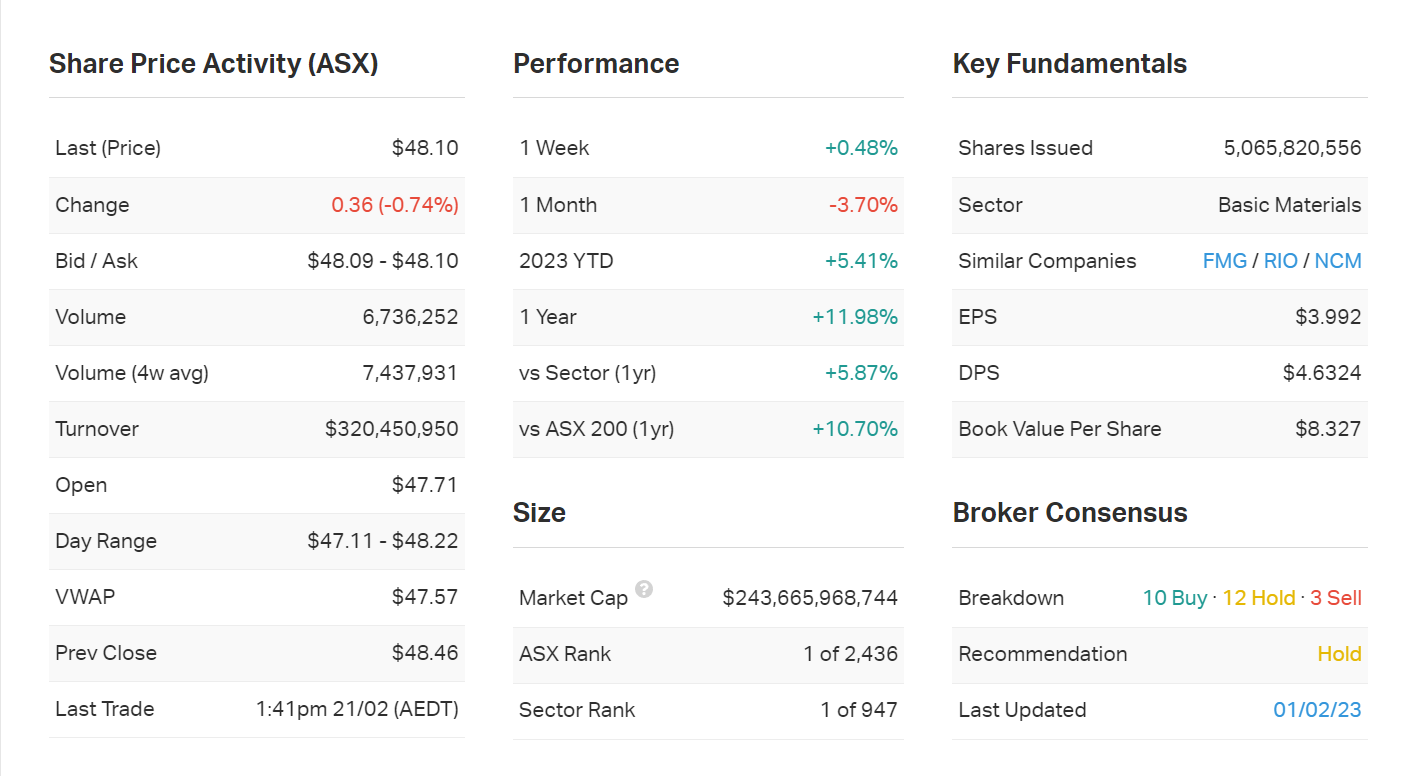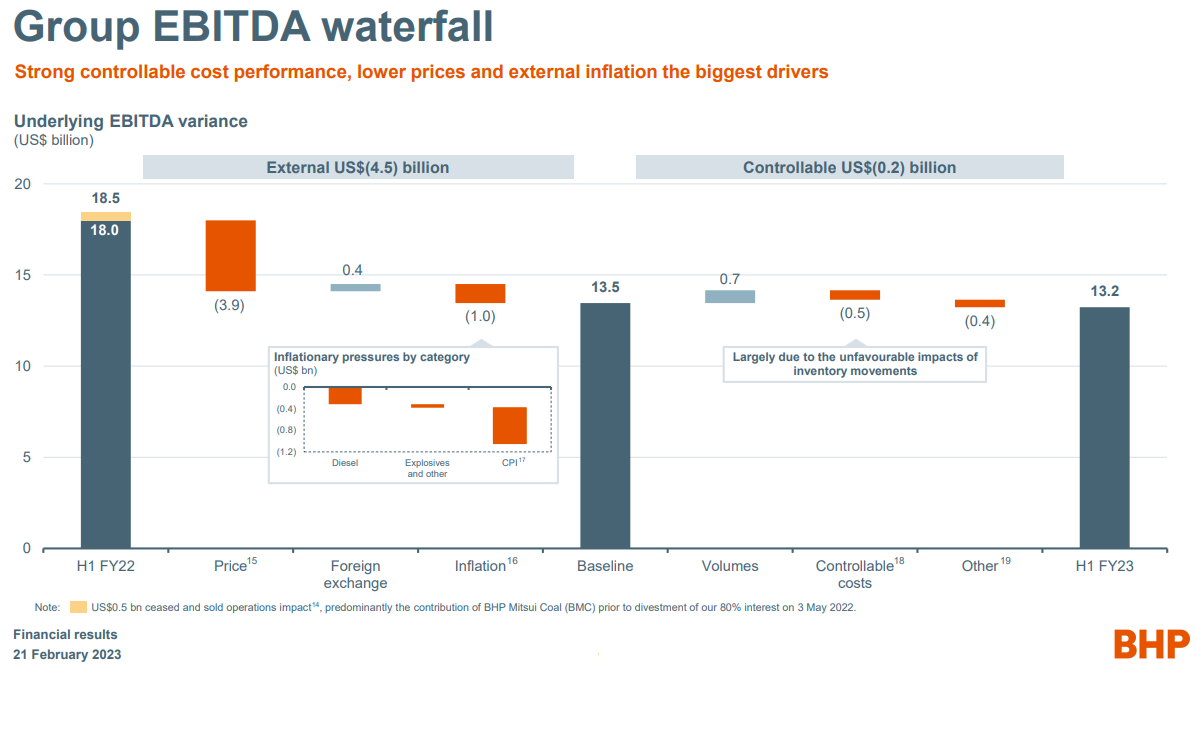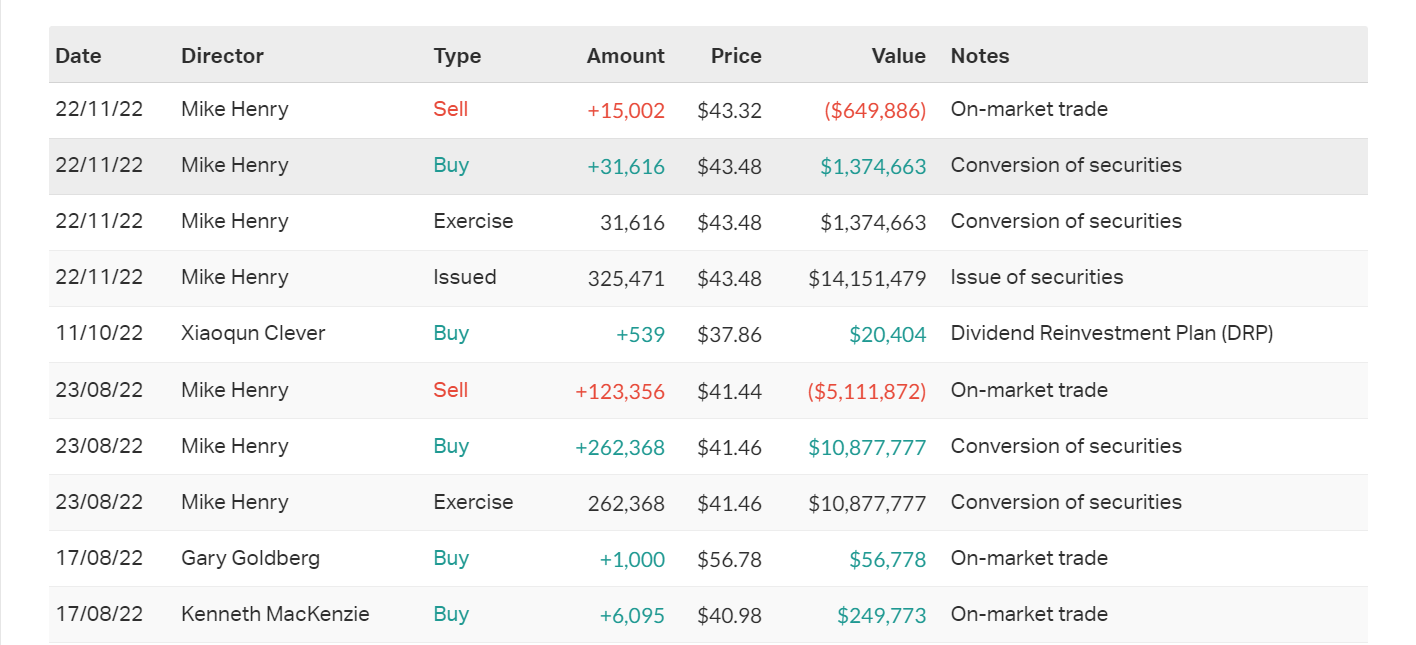Is this as good as it gets for the Big Australian?
Unfortunately, those expectations were not met this morning, with BHP delivering weaker profit numbers and cutting its dividend in its latest results release.
The company pointed to rising costs and COVID-19 lockdowns in China, which smashed the price of iron ore during the early part of the recent half.
Whilst the numbers didn't look great on the surface, the market and Yu Li from Blackmore Captial, don't seem too perturbed. The stock closed down marginally yesterday, with the market pouncing on early weakness, whilst Yu Li from Blackmore Capital noted:
"The company is doing what it can; controlling what it can control, improving volumes, adding to existing assets through optimisation - and BHP is really good at that".
In this wire, we discuss the recent results, why Li rates BHP a HOLD, and why she and Blackmore Capital are long-term bulls in the materials space.

Note: The interview took place Tuesday 21 February 2023.

BHP Group (ASX: BHP) 1H Key Results
- Reports H1 underlying EPS $1.30 vs company consensus of $1.35
- Revenue from cont ops $25.71bn vs consensus $25.58bn
- Underlying EBITDA $13.23bn vs company consensus $13.92bn
- Capital expenditures $3.03bn
- Underlying attributable profit - Continuing operations $6.6bn vs last year’s $9.72bn
- Interim dividend 90cps, fully franked, vs year-ago 150cps – down 40%
Key company data for BHP

What were the key takeaways from this result?
I would call it a solid result.
It misses on a range of metrics versus consensus, including the underlying earnings, dividend, and payout ratio, but there are a few points worth noting.
Firstly, BHP's targeted payout ratio is 50-80% throughout the cycle. So the current payout ratio is actually still well above the lower end of the guidance range. Second, we haven't seen any change to the cost of volume guidance for the full year. So the outlook profile actually hasn't significantly changed and is still intact.
And three, if you look at the waterfall chart (below) from the result presentation, which analyses the factors contributing to the difference between the underlying earnings for this half and the last comparable period, the majority comes from price and inflation, both of which fall into the uncontrollable category.

The negative impact of inflation represents about a quarter of the negative impact of prices. With regard to inflation, it's really diesel inflation which has been running at 12%, that is having a significant impact.
I think the company is doing what it can; controlling what it can control, improving volumes, adding to existing assets through optimisation - and BHP is really good at that.
So, a solid result – missing consensus and disappointment at the margin, but really just at the margin.
What was the market’s reaction to this result? In your view, was it an overreaction, an under-reaction, or appropriate?
Expected overreaction
The stock fell sharply off the open but recovered throughout the session to close down 0.33%.
The market seems disappointed, but this compares to with a fairly muted reaction for the broader index.
I would describe the market's reaction to BHP's results as an ‘expected overreaction’. It's an overreaction because there's no change to the outlook in terms of actually what matters - guidance and volume, and cost.
What we have seen recently is BHP riding higher since the start of November last year, on the back of higher iron ore prices, which have been largely fuelled by the reopening in China and the growth-promoting policies.
I guess the volatility is expected, but it's an overreaction because the fundamentals haven't changed.
Were there any major surprises in this result that you think investors should beware of?
A positive surprise is that there were no cost surprises coming out of the Jansen project.
Jansen is this major, US$5.7 billion potash project BHP has under development right now. I guess the market has seen a lot of projects updating on higher costs because of inflation, but Jansen is actually well on track. [The project] has also brought forward the first production expectation earlier than previously guided. BHP is expecting first production at end of 2026 rather than previously guided 2027. So I think that's a good surprise.
In terms of the earnings, I think it wasn't a surprise given that the market was already factoring in lower commodity prices than what BHP experienced in the first half of financial year 2022. At the same time, apart from the lower realised price for iron ore and copper, you have higher royalties as a result of the increased Queensland government royalty rates and then the inflationary impact. So really, that was well-anticipated.
Would you buy, hold or sell BHP on the back of these results?
Rating: HOLD
BHP has been a core stock in our portfolio for some time but the significant share price volatility, which is something that we have seen today, due to microeconomic and commodity market conditions, warrants some flexibility in the portfolio weight.
Commodity producers are price-takers, so the way we think about them is that we always prefer to have exposure in tier-one assets, in a reliable jurisdiction, with a low-cost profile. That means most of the assets should be sitting at the bottom of their respective cost curve, and that means they would retain the ability to generate cash even in environments where the underlying asset prices are lower.
To hold BHP right now really means that we're taking a longer-term view. We've seen enough evidence to show that trying to predict short-term catalysts is not the easiest thing to do.
The way we invest is to look for companies with low-cost, diversified assets, and a strict capital allocation framework with a bias for capital return (which BHP has) to actually make sure that they are able to generate superior returns throughout the cycle.
What’s your outlook on BHP and its sector over the year ahead? Are there any risks to this company and its sector that investors should be aware of?
The short-term outlook looks positive, given the growth-promoting policies in China. The miners and broader sector have had a lot of challenges, including absenteeism and supply chain issues which, according to BHP, have more or less eased now. But inflation pressures, which arrive with a lag, still continue.
In the longer term, we’re focused on energy transition and the demand that will create. Metals are essential for energy transition to succeed, but providing those metals can be energy intensive, and we've seen BHP reposition its portfolio to capitalise on the energy transition with a focus more on minerals used to make batteries for electric vehicles.
And we don't see this changing anytime soon. We don't see this changing in the longer term. The resources industry right now must not only continue to service the demand based on traditional drivers, that is growing due to a more affluent and bigger population, and because modern life is fundamentally dependent on those metals, but they also have to provide the materials to reach the energy transition goal.
Whether it is the nickel used in electric batteries, the steel used in wind turbines, the coal used in steel production, the potash required to boost agricultural yield, or the copper to facilitate the electrification megatrend, they will all have to grow to make the green transition happen.
We have a structurally positive outlook over the longer term for this sector because there's no energy transition without a very large increase in the production of those critical materials.
From 1-5, where 1 is cheap and 5 is expensive, how much value are you seeing in the market right now? Are you excited or are you cautious on the market in general?
Rating: 3
We are cautious. I think from the valuation perspective, the price-to-earnings ratio for the broader market is now sitting at about 15x. To put that into context, it came down from the high of maybe 20x from late last year. The 15x times is sitting just slightly above the long-term median level of 14.5x.
So, I wouldn't call this overvalued or undervalued. It's pretty fair. Right now, it's really coming down to whether we see either a multiple expansion or earnings continue to support the market to move higher. Through the reporting season so far, we have seen companies reporting good revenue growth. At the same time, pressure is being seen at the margin level due to wage and raw material inflation, and an increasing cost of debt.
We're cautious because of these factors and, as interest rates continue to rise, the cost of capital will rise. This is why strong balance sheets are so important.
As we continue to a moderation in revenue and earnings growth, it's important that we are cautious and look for companies with resilience, stable earnings, great financial leverage, great balance sheet positions, and then operational efficiency and operational leverage to be able to stay defensive.
10 most recent director transactions

Catch all of our February 2023 Reporting Season coverage
The Livewire Team is working with our contributors to provide coverage of a selection of stocks this reporting season. You can access all of our reporting season content by clicking here.
2 topics
2 stocks mentioned
1 contributor mentioned


